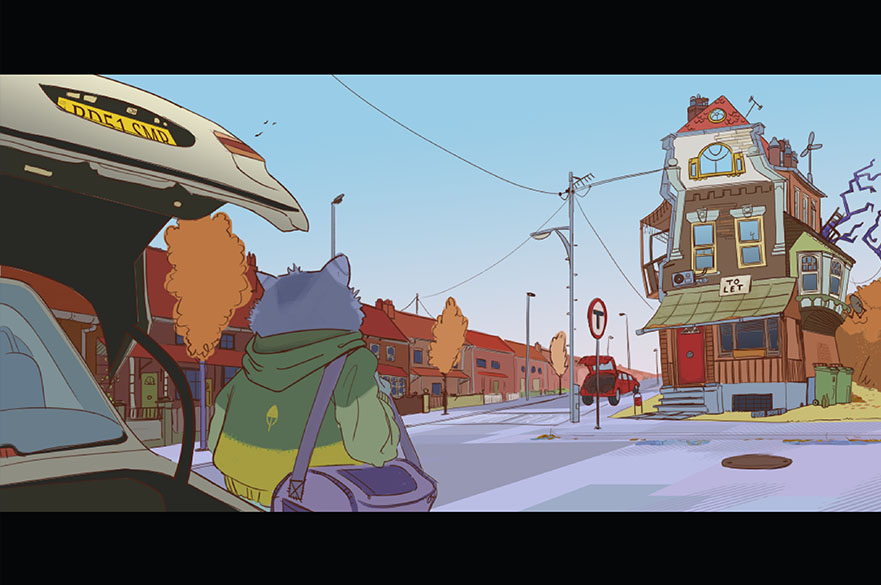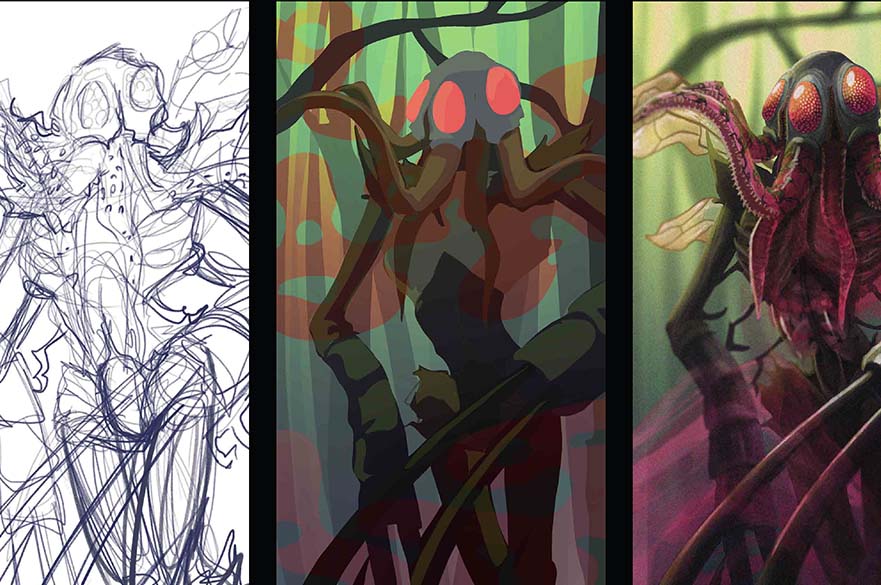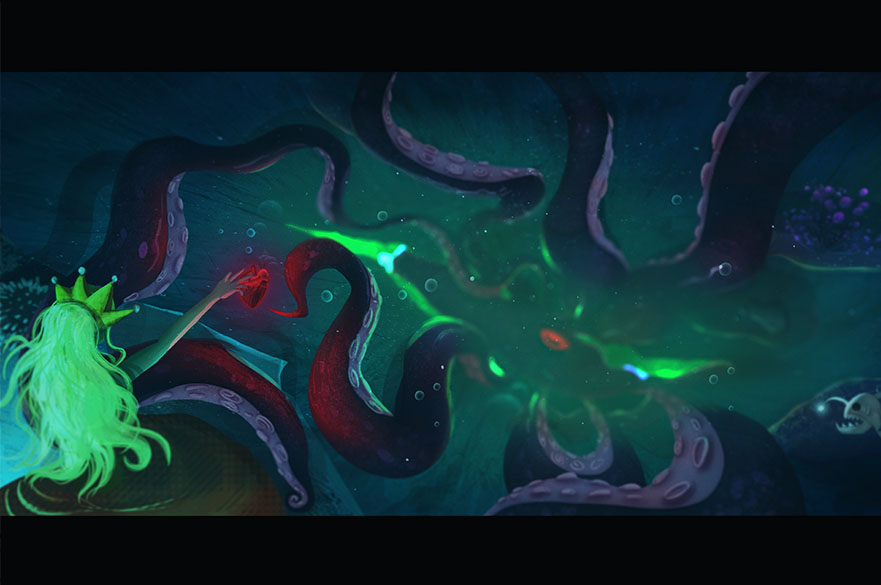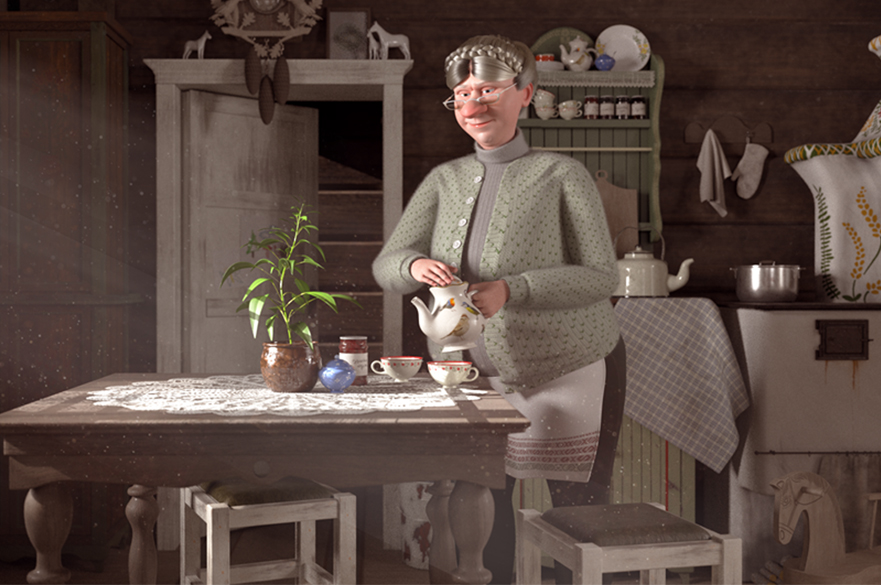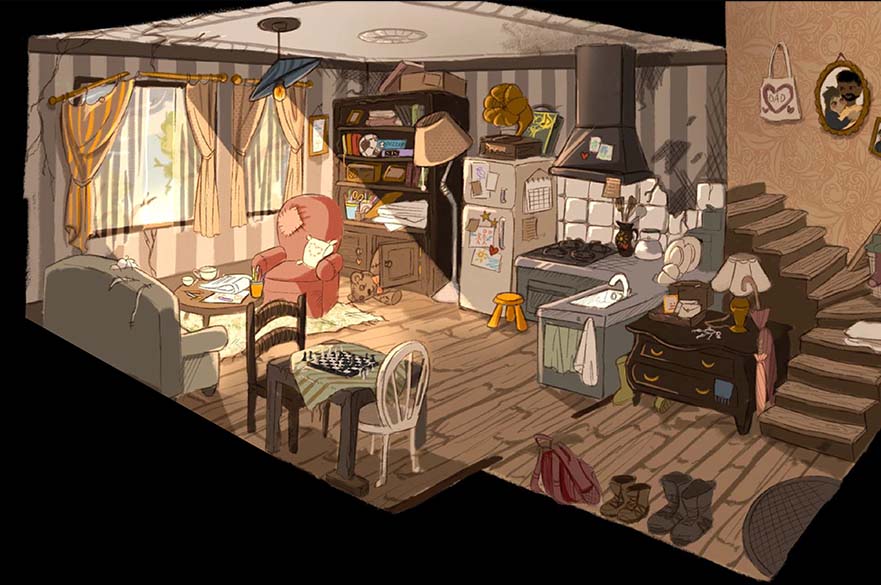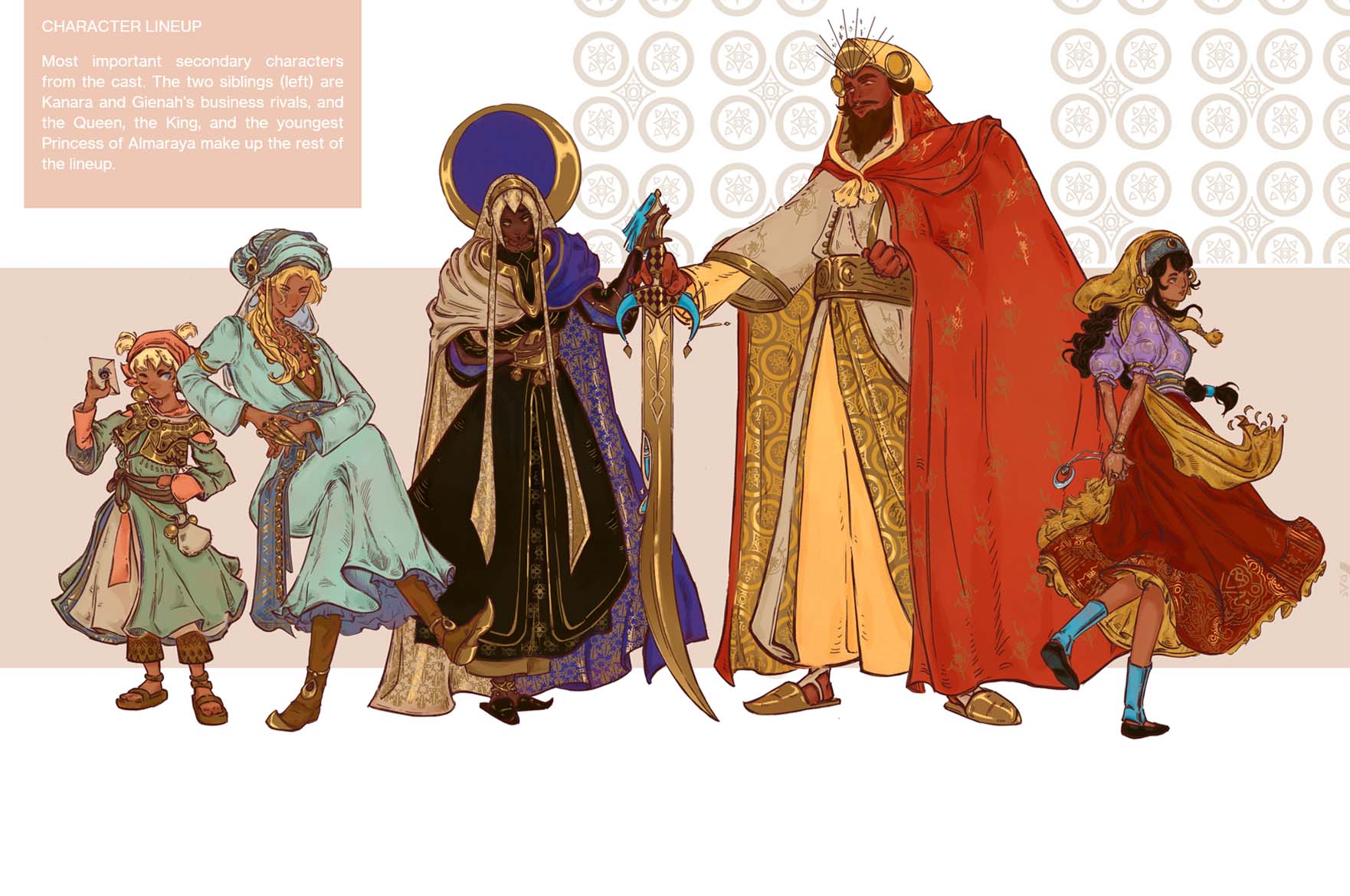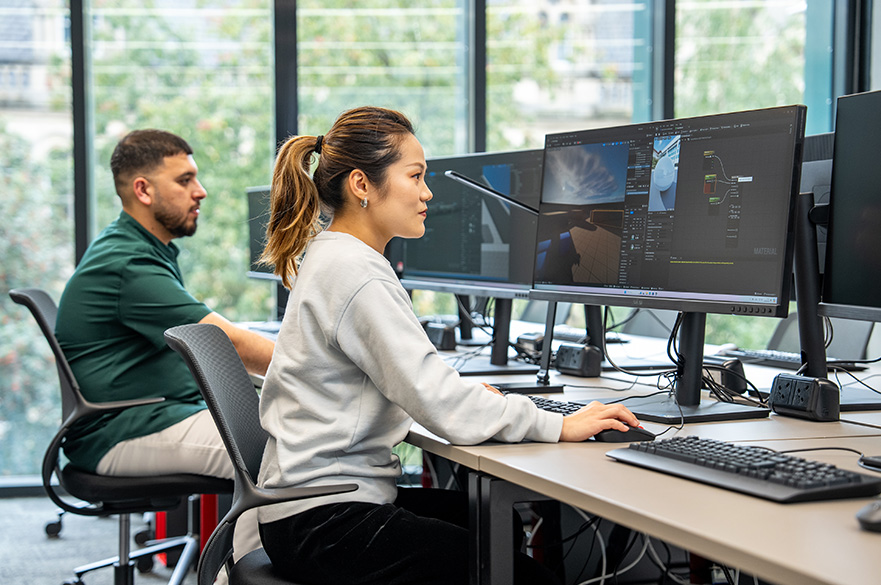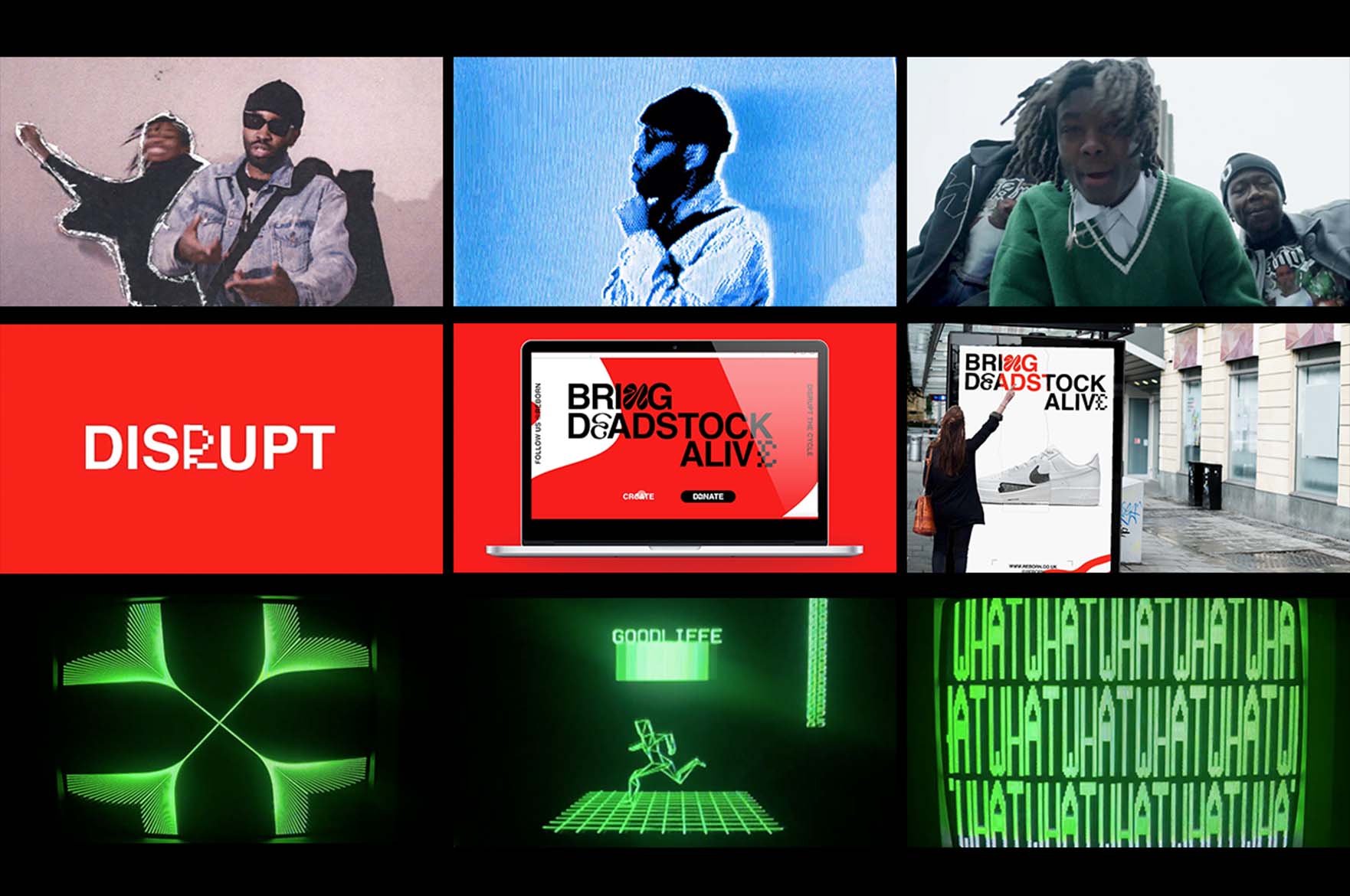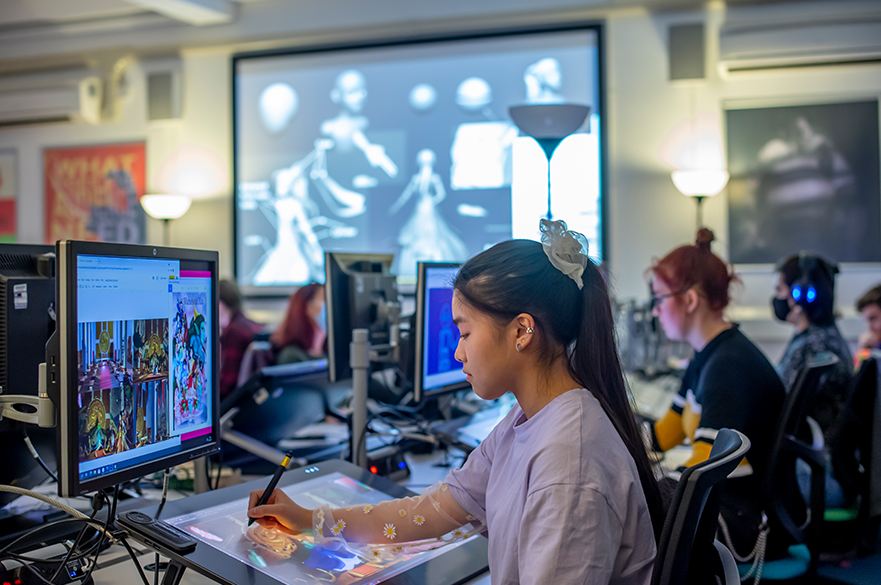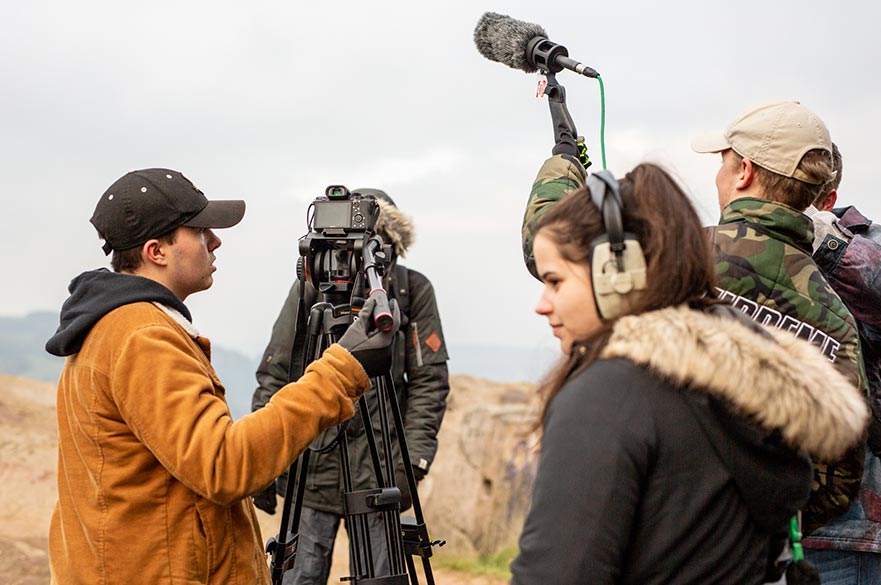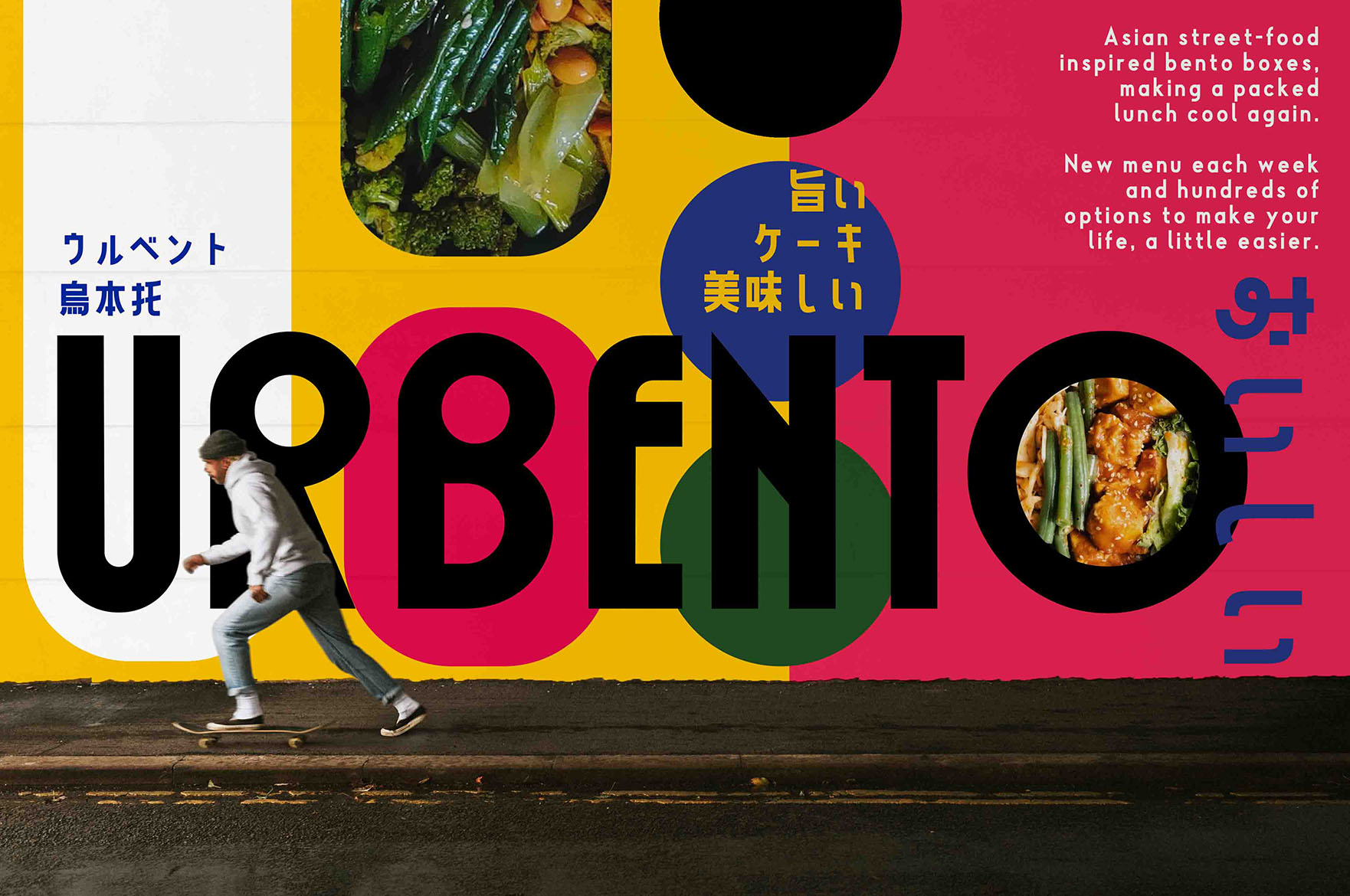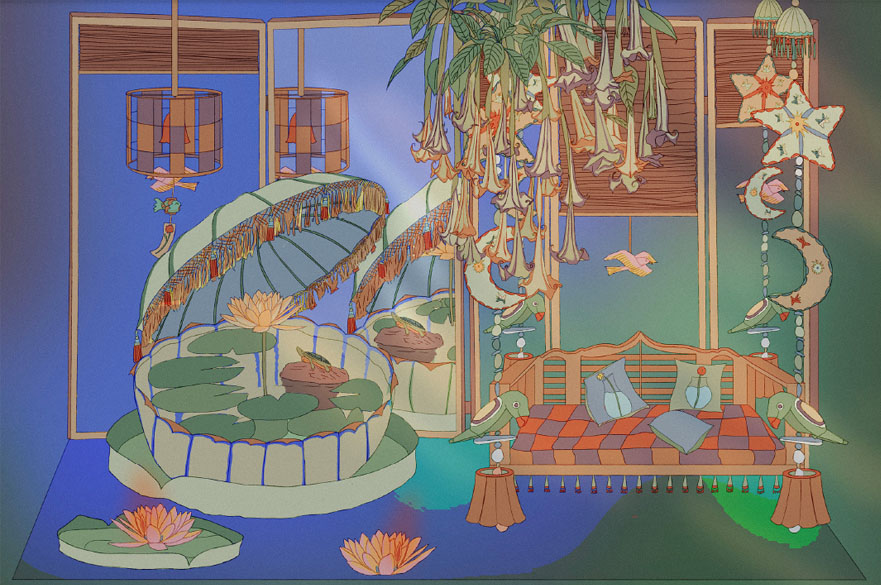This course is in Clearing
Offers from 80 tariff points
About this course
The UK's animation industry is a global success, so there's never been a better time to start your career in this field.
As an ambitious storyteller and creative thinker, you’ll explore all aspects of 2D and 3D animation on this innovative degree course. We'll equip you with the critical and technical skills required to become an animator, engaging in every aspect of animation production while gaining knowledge of animation history and context.
The course provides a creative and disciplined environment to explore the visual and narrative aspects of this dynamic art form. Supported by the contextual study of animation, you’ll have the opportunity to express yourself as an animation artist in preparation for this vibrant, demanding and forever-changing creative field. You’ll explore the different areas of animation through studio practice, academic research, and independent study.
By the end of the course, you’ll have developed project work and films that build into a professional showreel tailored to your own career aspirations, ready to launch your career.
15
What you’ll study
This course will give you the technical, intellectual, creative and professional skills you’ll need to work successfully within the industry both nationally and internationally. Beginning with the principles of animation, you will learn how to animate in digital 2D and 3D. You will study drawing for storyboarding and visual development in a progressive, systematic way. This includes character and environment design, 3D production workflow, acting for animators and all stages of animation production.
By the end of the course, you’ll have developed project work and films that build into a professional showreel tailored to your own career aspirations, ready to launch your career.
Principles of Animation
(40 credit points)
Learn the core concepts and foundational skills of animation through studio-based seminars, tutorials and self-directed research. Stimulate your intellectual curiosity and begin to develop your own creative identity through hands-on investigative exercises, to prepare you for animation production.
Animation and VFX Studies
(20 credit points)
In this module, you will pursue an academic approach to understanding the historical and industrial context of Animation, VFX, cinematic language, internationalism, ESD, film theory, form theory (light, colour, realism & hyperrealism), and ethical and representational considerations in visual effects and animation production. By exploring these various topics in depth, you will gain a well-rounded understanding of the intricacies involved in the creation of visually stunning and thought-provoking animation and VFX productions.
Animation Workflow
(40 credit points)
Enhance your knowledge and ability to apply animation's fundamental concepts, principles, and skills in a studio setting. You will attend seminars, receive tutorials, and conduct personal research to foster your intellectual curiosity and nurture your distinct creative identity through brief, practical exercises. This will prepare you for the extended workflow of animation production. Ultimately, you will utilise these concepts to produce your first animated short film for the course.
Introducing 3D Digital Art
(20 credit points)
The main objective of this module is to teach you how to create digital models and develop lookdev skills. You will learn about polygonal modelling, surfacing, and lighting. In addition, there will be workshops focusing on life drawing to improve your understanding of the human form, reinforced by practical production research and traditional visual arts such as painting.
Animation Production
(40 credit points)
Take your skills and knowledge in Animation Studio to the next level. You will choose a specialist teaching and learning area in either 2D or 3D techniques and demonstrate your improved understanding and ability by creating a short animated film at the end of the module.
You will have the opportunity to improve your character animation skills by focusing on acting and performance using your preferred technique. This will be done through project briefs that emulate a professional studio environment and challenge your knowledge of visual language, narrative, evaluation, and problem-solving.
Animation Studio
(40 credit points)
Animation Studio will further your skills and knowledge from those acquired in Animation Principles. As the module progresses, you will have the opportunity to choose specialist teaching and learning in either 2D or 3D techniques. At the end of the module, you will have a body of work that evidences your engagement in, understanding of, and achievement using the concepts of animation studio practice.
You will have the opportunity to progress your character animation skills as part of acting and performance, using your chosen technique. You will work on client-led live briefs that simulate collaborative teamwork in a production environment. Additionally, you will apply your knowledge of visual language, narrative, evaluation and problem solving whilst completing your chosen projects.
CoLab: Research, Exploration and Risk-taking
(20 credit points)
Through active participation with team-based problem-solving, you will work together in mixed teams on a project where you will use your creative ideas to generate solutions to the challenge or brief. Your project will allow you to explore how creativity can make an impact in society, as you choose a theme of sustainability, social justice, enterprise and innovation or community. This collaborative learning experience will expose you to a range of new processes and approaches that will develop your creative thinking.
Optional module
You will also choose one optional 20-credit module from:
- Storyboarding
- Character Ideation
- Experimental Animation
- Telling Stories
- Motion Graphics
- Digital Matte Painting
- Performance for Motion Capture
- Open-source 3D Art
Optional Placement Year (Sandwich)*
We have an option for all of our students to undertake a placement year and allow you to decide whether this is right for you once you have completed years 1 and 2 of your course. This time spent working in industry provides our students with crucial work experience, which is highly prized and much sought after by employers upon graduation. If you are successful in securing a placement you will have the chance to gain an additional Certificate or Diploma in Professional Practice, dependent on duration.
The additional placement year incurs a fee. For international students considering the transfer to the 4-yr SW route it’s important to seek advice from the International Student Support team and the Home Office regarding any potential visa implications and costs. For UK students, advice should also be sought regarding SLC eligibility, if applicable.
* If you choose to take the sandwich route option, you will still need to apply for this course with the full-time UCAS code: W213
Animation Specialist Project
(60 credit points)
This specialist project lets you work independently or as a team to create substantial original work that showcases your skills, creating the core of your professional portfolio. You can either develop a short film or develop an industry-ready body of work in an animation specialisation. We encourage you to be original and reflect on your creative process to position yourself in the animation industry. In support of your practice, you will reflect upon and evaluate your creative process, looking towards positioning yourself within animation or associated industries.
Animation Futures
(20 credit points)
This module helps you evaluate your past learning and specialised direction so that you can concentrate on developing your skills for your final year and graduate successfully. The module is delivered in two blocks throughout the year. The first part will help you determine your direction, the mid-year point will track your progress, and the final part will focus on professional development workshops, employability support, and advice on creating a reel/portfolio.
Animation Pre-Production
(40 credit points)
Take your understanding of the animation pipeline to the next level. This will be your opportunity to establish the foundations for a substantial animated story. This will allow you to develop your own unique and innovative voice within the short animated film form. The emphasis is on creating authentic and original storytelling that truly captivates your audience. Additionally, you will be challenged to critically reflect and evaluate your creative process to position yourself within the animation or associated industries.
OR
Screen Arts Collaboration
(40 credit points)
This module offers students a half-year opportunity to work with other screen arts students to fully develop a group project with a negotiated outcome or with an industry partner.
We regularly review and update our course content based on student and employer feedback, ensuring that all of our courses remain current and relevant. This may result in changes to module content or module availability in future years.
Don’t just take our word for it, hear from our students themselves
Student Work
Video Gallery
How you're taught
Teaching and learning experiences will include:
- lectures and briefings
- studio workshops
- seminars
- tutorials
- peer and self-evaluations
- verbal and visual presentations
- teamwork
- live projects
- study trips
- personal development planning.
Collaboration across courses
This course offers our new innovative collaboration module. This gives you the opportunity to work collaboratively with your contemporaries from a range of different art and design subjects and beyond. You’ll be working alongside artists, designers, photographers, illustrators, animators, and filmmakers on daring and creative projects that prepare you for a rewarding career in your chosen industry. Your project will allow you to explore how creativity can make an impact in society, as you choose a theme of sustainability, social justice, enterprise and innovation or community.
Exchange opportunities
If you’re thinking about studying part of your degree abroad, the course has exchange agreements with a number of institutions around the world.
Exchanges take place in Year Two of the course. You’ll receive guidance from the University about where you can study, and help in completing your application and arranging your exchange.
Showcase
You will be given the opportunity to exhibit your work during your time at NTU to members of the creative industries. Visit our ‘We Are Creatives’ showcase to take a look at the work of this year's graduating students’.
You’ll also have the opportunity to be selected to exhibit your work at international film festivals, such as the Annecy International Animated Film Festival.
Further information
- You'll have access to industry-standard equipment and software such as Maya, TVPaint, CelAction2D, ZBrush and Adobe CC.
- NTU is in the UK’s Top 15 for Art & Design in the Complete University Guide 2023 (Ranked 15th).
Careers and employability
Employability is a key focus of this course, with modules including initiatives such as live projects and trips, and the opportunity to exhibit your work, which will help to raise your profile and enhance your future career.
This course will prepare you to work in the digital media field, in areas such as feature film animation, Visual Effects, children’s television, heritage interpretation, advertising, and games production.
Recent graduate destinations and roles include:
- Character Animator, Splash Damage
- Production Coordinator at Acamar Films
- 2D Effects Animator at Play n' GO
- Animator/Producer, Thongkham film, Bangkok
- 3D Motion Graphics Designer, BritAsia TV
- Animator, Cloth Cat Animation
- Layout Artist, Blink Industries, London
- 2D Animator, Dog Ears!
- 3D Animator, Random42 Scientific Communication
- Character Animator at Blue Zoo
- Background Painter at Lupus Films
- 2D Animator, Fourth Wall
- Motion Graphics Designer at Cubaka Studio.
You’ll also develop transferable skills for alternative careers in media, freelance design, illustration, motion graphics, teaching and academia.
Connecting with industry and work placement opportunities
Industry professionals will visit the course to guest lecture and share their experiences. Live projects and competitions will help you to gain real experience of the industry, make contacts, and build your portfolio and CV.
You’ll be encouraged to undertake short periods of work experience alongside your studies. You will normally complete these placements during holiday periods, but you will have the option of taking up to two weeks out of term time, which you can negotiate with your tutor.
In addition, you’ll also have the opportunity to complete a longer work experience or placement, with the chance to gain an additional Diploma or Certificate in Professional Practice, dependent on duration. Course tutors and our Employability team are on hand to support you in applying for placement and professional practice opportunities.
YouFirst – working with our Employability team
Studying a creative degree in a large university has many benefits, none more so than having access to a large employability team.
Our friendly, experienced careers consultants will work closely with you at every stage of your career planning, providing personal support and advice you won't find in a book or on the Internet. You can benefit from this at any time during your studies and for up to three years after completing your course.
Creative Industries Federation
We are members of the Creative Industries Federation (CIF), which means students in the Nottingham School of Art & Design have the opportunity to sign up to free student membership. Creative Industries Federation are an organisation that represents, champions and supports the UK’s creative industries and membership grants students exclusive access to their selection of resources and events to help advance your career and connect with industry.
What our students are doing now
Filmmaking and Animation graduates celebrated at the Royal Television Society Midlands Student Awards 2024
It was a stellar night for our screen-based courses earlier this week, as NTU Filmmaking and Animation graduates won multiple awards at the Royal Television Society’s (RTS) Midlands Student Awards 2024.
Specialist workshop with Jabari Cofer, Animation Lead at Sony Pictures Imageworks.
Campus and facilities
You’ll be based in our new Design & Digital Arts Building. Opening for 2024 admission, our new Design & Digital Arts Building will place Nottingham as a UK hub for film, television, animation, UX design, games design, graphic design and more.
You'll have access to industry-standard facilities which include a virtual production studio, an in-camera Visual Effects studio and a black box studio, as well as collaborative studio spaces, future technology suites and exhibition spaces.
Entry requirements
This course is in Clearing
Looking for a place in Clearing? We are accepting application and would love to hear from you!
UK students
This course is in Clearing
Looking for a place in Clearing? We are accepting applications and would love to hear from you!
Clearing requirements
From 80 UCAS tariff points from up to 4 qualifications.
To discuss our entry requirements and see what we can offer you, call us now on +44 (0)115 848 6000. Alternatively, if you already have your qualifications, apply online via our Clearing Application form.
Preparing for results day? Beat the queue and sign up for NTU Priority for up-to-date information about all things Clearing. You’ll get an offer ahead of Clearing, subject to you achieving the required grades on results day.
Other requirements:
To find out what qualifications have tariff points, please use our tariff calculator.
Additional requirements for UK students
There are no additional requirements for this course.
Contextual offers
If you don’t quite meet our entry requirements, we might be able to make you a lower offer based on a range of factors, including your background (such as where you live and the school or college you attended), your experiences and your individual circumstances (you may have been in care, for example). This is called a contextual offer, and we get data from UCAS to help make these decisions. We do this because we believe everyone with the potential to succeed at NTU should have the opportunity to do so, no matter what barriers you may face.
Meeting our entry requirements
Hundreds of qualifications in the UK have UCAS Tariff points attached to specific grades, including A-levels, BTECs, T Levels and many more. You can use your grades and points from up to four different qualifications to meet our criteria. Enter your predicted or achieved grades into our Tariff calculator to find out how many points your qualifications are worth.
Other qualifications and experience
NTU welcomes applications from students with non-standard qualifications and learning backgrounds, either for year one entry or for advanced standing beyond the start of a course into year 2 or beyond.
We consider study and/or credit achieved from a similar course at another institution (otherwise known as credit transfer), vocational and professional qualifications, and broader work or life experience.
Our Recognition of Prior Learning and Credit Transfer Policy outlines the process and options available for this route. If you wish to apply via Recognition of Prior Learning, please contact the central Admissions and Enquiries Team who will be able to support you through the process.
Getting in touch
If you need more help or information, get in touch through our enquiry form.
International students
This course is in Clearing
Looking for a place in Clearing? We are accepting applications and would love to hear from you!
Clearing requirements
From 80 UCAS tariff points from up to 4 qualifications.
To discuss our entry requirements and see what we can offer you, call us now on +44 (0)115 848 6000. Alternatively, if you already have your qualifications, apply online via our Clearing Application form.
Preparing for results day? Beat the queue and sign up for NTU Priority for up-to-date information about all things Clearing. You’ll get an offer ahead of Clearing, subject to you achieving the required grades on results day.
We accept equivalent qualifications from all over the world. Please check your international entry requirements by country.
Other requirements:
English language requirements: See our English language requirements page for requirements for your subject and information on alternative tests and Pre-sessional English.
Additional requirements for international students
If you need help achieving the academic entry requirements, we offer a Foundation preparation course for this degree. The course is offered through our partner Nottingham Trent International College (NTIC) based on our City campus.
English language requirements
View our English language requirements for all courses, including alternative English language tests and country qualifications accepted by the University.
If you need help achieving the language requirements, we offer a Pre-Sessional English for Academic Purposes course on our City campus which is an intensive preparation course for academic study at NTU.
Other qualifications and experience
If you have the right level of qualifications, you may be able to start your Bachelors degree at NTU in year 2 or year 3. This is called ‘advanced standing’ entry and is decided on a case-by case basis after our assessment of your qualifications and experience.
You can view our Recognition of Prior Learning and Credit Transfer Policy which outlines the process and options available, such as recognising experiential learning and credit transfer.
Sign up for emails
Sign up to receive regular emails from the International Office. You'll hear about our news, scholarships and any upcoming events in your country with our expert regional teams.
Getting in touch
If you need advice about studying at NTU as an international student or how to apply, our international webpages are a great place to start. If you have any questions about your study options, your international qualifications, experience, grades or other results, please get in touch through our enquiry form. Our international teams are highly experienced in answering queries from students all over the world.
Policies
We strive to make our admissions procedures as fair and clear as possible. To find out more about how we make offers, visit our admissions policies page.
